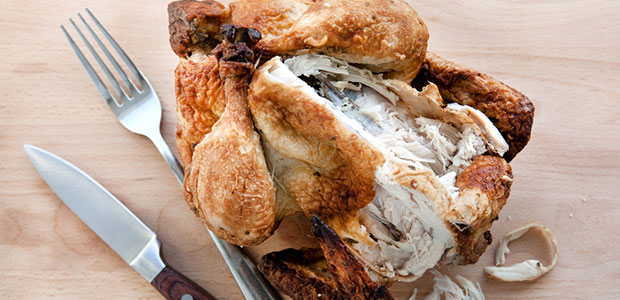
Turkey Grease: How the Thanksgiving Feast Can Cause Environmental Havoc
This Thanksgiving, families across the country will be filling their bellies with good turkey—but they’ll also be clogging their drains with grease. Here are some ways to avoid “fatbergs” before they damage your drains and cause bigger environmental issues.
- By Aaron Kraft
- Nov 25, 2019
As communities and individuals across the country identify new ways to reduce their carbon footprint and minimize waste, their efforts are undermined by households unwittingly producing "fatbergs" by pouring things like turkey grease down the drain.
What are “fatbergs”? Caused by the accumulation of oil, grease and non-disposable waste dumped down toilets and sinks, these disgusting masses grow over months and even years. The result? Sewers are clogged, wastewater infrastructure is damaged, and public and private sewer backups cost vital tax dollars. And beyond the associated clean-up costs, fatbergs present a tremendous environmental and public health threats.
The EPA estimates that 65 percent of sewer spills are caused by fats, oils and grease. Not only is this problem contributing to inflated operating costs for cities and towns, but fatbergs can become so bloated they cause people’s toilets to back up, flooding their homes with raw sewage.
The U.S. spends an estimated $100 million annually addressing fatberg issues in cities big and small. Such clean-up costs exceeded $18 million last year in New York alone. In 2017, Baltimore spent $60,000 clearing a single 20-foot fatberg. Detroit cleared a massive 100-foot-long fatberg found in an 11-foot diameter pipe, costing the taxpayers $100,000.
This is a global issue, impacting both urban and rural communities. Even in smaller cities and towns, these annual costs can climb into tens of thousands of dollars. For instance, Fort Wayne, Indiana has spent half a million dollars a year cleaning grease out of sewers. And one particularly appalling mass—stretching more than 250 feet—was recently found in a drain in London.
In Rialto, Calif., where I work as the general manager of the city’s water and wastewater treatment plants, the town recently experienced a fatberg-induced backup, causing overflowing sewage at two busy intersections. Employees at Veolia, working closely with local officials, spent the better part of a week using heavy equipment to flush and vacuum the sewer overflows that covered streets and spilled into nearby stormwater catch basins.
It goes without saying that raw sewage contains disease-causing pathogens, including viruses and bacteria. And when these overflows contaminate public places and water, people, animals and ecosystems are put in severe danger. More than 60 percent of threatened and endangered species are water-dependent, raising the stakes for combatting the effects of congealed, non-biodegradable mass.
The solution begins at home. While many products, such as wipes, are marketed as “disposable,” the reality is they frequently attach themselves to grease and oil residing in sewer pipes, allowing fatbergs to snowball and lead to overflows, backups, clogged pumps and failed sewer systems. Restaurants tend to be the biggest culprits in terms disposing grease improperly, but average Americans can be mindful of the best way to dispose of their household items.
Whether it’s securing grease in a sealed, non-recyclable container and throwing out with regular garbage or simply being careful to not use the sink as a toilet—or the toilet as a garbage disposal—there’s a lot everyday people can do to minimize the dangers of fatbergs.
With Thanksgiving right around the corner, it’s particularly important to think twice before depositing turkey grease down the sink. Hot fat can be poured easily, but quickly solidifies, causing sewer pipe blockages. Small pipes in homes are most likely to be affected, risking blocked drains, flooding and, eventually, increased pollution.
In the United States, over 14,000 wastewater treatment plants support vital infrastructure systems protecting public health and the environment. According to a recent infrastructure report card, at least $271 billion of investment is needed to meet current and future wastewater system demand. So while there’s a huge scope at-play, this issue is ultimately local and personal.
Given the financial and environmental impact on municipal sewers, along with residential plumbing, this is a critical moment where the public can step up to address flushable waste and grease traps. The negative image of fatbergs—disgusting, oozing blobs—is well-earned. Now it's time that their serious, expensive, and long-term repercussions on public health and the environment are met with similar revulsion.
This Thanksgiving, when you’re doing the dreaded clean-up and preparing leftovers, you might want to think twice about what you do with that turkey grease.
About the Author
Aaron Kraft is a General Manager at Veolia North America, which operates and maintains water and wastewater treatment plants for municipalities across the country. He oversees water and wastewater treatment operations in the city of Rialto, Calif.